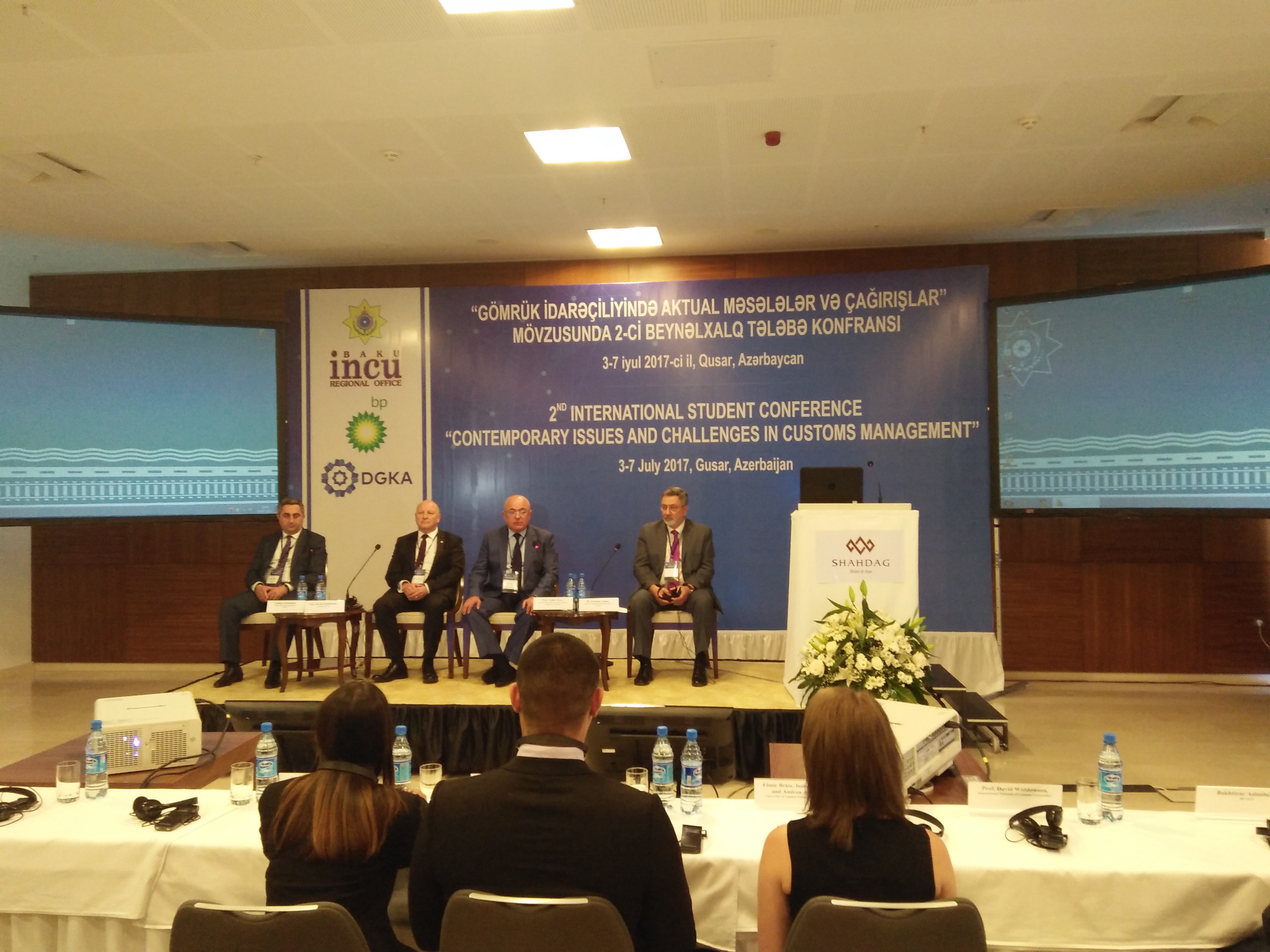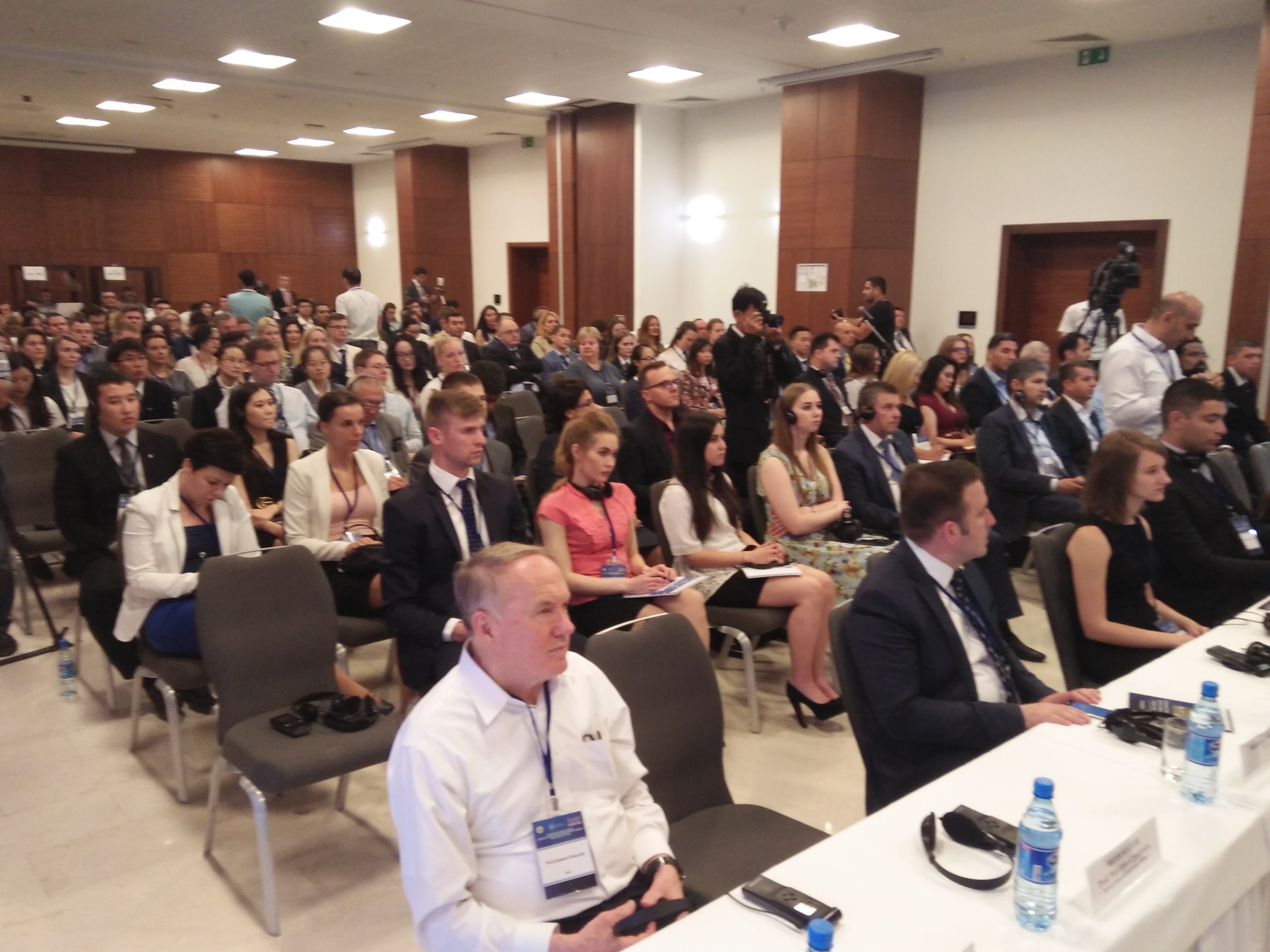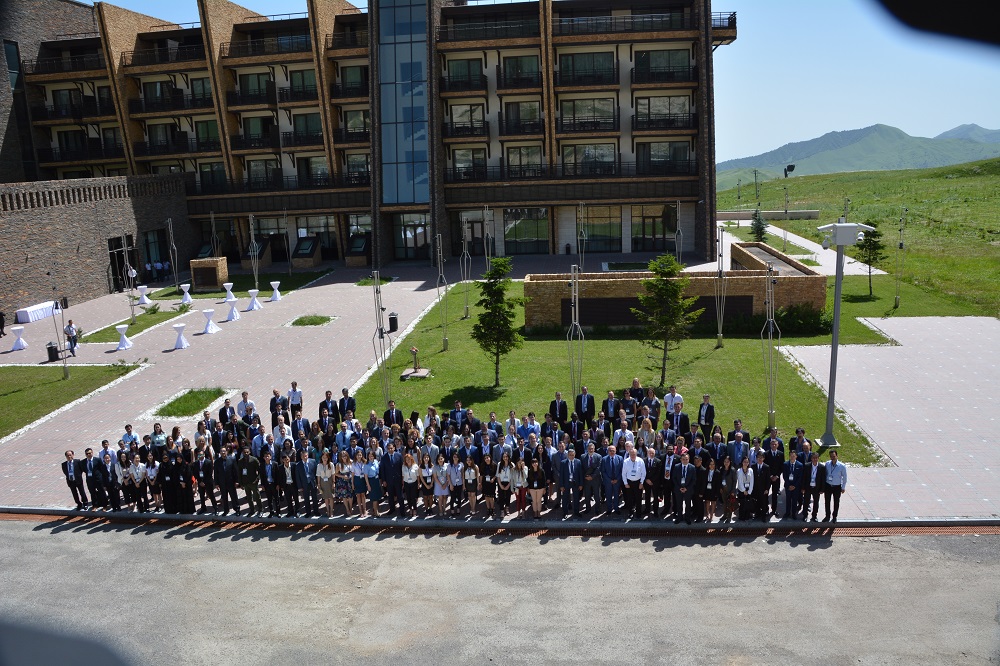International customs officers gather for co-operation
 |
| Customs officers, students, and scientists from around the globe flew to Azerbaijan to attend the conference |
The event, taking place during July 3-7, 2017 in Qusar region of Azerbaijan, is organised by the International Network of Customs Universities and INCU Baku Regional Office, in co-operation with the Academy of the State Customs Committee of Azerbaijan.
“The conference is aimed to exchange experience and develop mutual relations among the participants by creating a research environment on teaching, training, and scientific research in the field of customs matters,” said Professor Aydin Aliev, chairman of State Customs Committee of Azerbaijan.
“The conference will create conditions for students and scientists to present their research and to exchange views on various scientific knowledge related to customs matters, as well as to discuss relevant topics with customs experts from a number of countries across the world,” Aliev said.
The event is attended by students and scholars of different universities of a number of countries, such as Belarus, China, Hungary, Iran, Laos, Macedonia, Poland, the Philippines, Ukraine, Uruguay, the US, and Vietnam.
These attendants are engaged in research and training in the field of customs matters and will investigate possible solutions to issues of mutual interest and will strengthen co-operation between the customs and scientific partners regarding capacity building in the field of customs.
The conference’s topics are focused on the role of customs management in trade facilitation; international practices in customs legislation modernisation; best practices in customs; digital customs/e-customs, e-trade, and customs data analysis; knowledge-based customs education (skills and competencies); and customs to business partnership.
Stressing the importance of customs management in trade facilitation, Tran Phu Qui, a representative from Vietnam’s Dong Thap Customs Department, told the conference that trade facilitation is defined as the simplification, harmonisation, standardisation, and modernisation of international trade procedures. Thus, customs agencies are bound by playing the roles as both trade facilitators and guardians of the economy.
“They have to find the proper balance between these parameters, and in the new globalised economy, they have to find new ways to discharge their duties,” Qui said. “E-commerce, cybercrime, fraud, and transnational crime are among the new challenges that impact their work today.”
According to experts, the most dramatic changes are in the trading environment in which goods are carried and traded, the speed of such transactions, and the sheer volume of goods that are traded around the globe.
 |
| The conference aims to bring customs professionals in the world up to speed with the issues most relevant to the field |
In the past few decades, there have been a number of significant changes in global trading practices, and customs administrations around the world have been required to continually adapt their methods of operation in an effort to maintain their effectiveness and relevance.
For example, the emergence of wide-bodied aircrafts, shipping containers, e-commerce, and the increasing complexities of international trade agreements have all impacted the way in which customs administrations fulfil their responsibilities, and customs administrations around the globe have seen a dramatic increase in workload across all areas of activity, fuelled by the technological advances that have revolutionised trade and transport.
Nevertheless, the basic elements of customs administration remain essentially the same, government officials are seeking to enforce the law and traders are seeking to minimise government intervention.
When examining the issues of trade facilitation and regulatory control, it is important to recognise these differing needs and expectations of the customs and the business community.
On the one hand, experts said, traders are looking for the simplest, quickest, cheapest, and most reliable way of getting goods in and out of the country. They are looking for certainty, clarity, flexibility, and timeliness in their dealings with customs. They are also looking for the most cost-effective ways of doing business. Customs authorities, on the other hand, are seeking to prevent smuggling, detect contraband, and ensure compliance with revenue, licensing, and other legal requirements. Additionally, they too are looking for the most cost-effective ways of doing business.
Consequently, traders are driven by commercial imperatives, while customs organisations are primarily driven by the law. What customs administrations are now seeking to achieve is an appropriate balance between trade facilitation and regulatory control.
 |
| The global customs community stands at the ready to evolve and adapt to new circumstances |
“To function effectively, customs administrations can no longer remain isolated entities, away from the social context. They need to co-operate with other agencies and business partners,” Qui said. “They also need to strengthen themselves via organisational reforms and proper use of IT, and strategic co-operation with partners around the world in order to achieve win-win solutions.”
What the stars mean:
★ Poor ★ ★ Promising ★★★ Good ★★★★ Very good ★★★★★ Exceptional
Latest News
More News
- Vietnamese businesses diversify amid global trade shifts (February 03, 2026 | 17:18)
- Consumer finance sector posts sharp profit growth (February 03, 2026 | 13:05)
- Vietnam and US to launch sixth trade negotiation round (January 30, 2026 | 15:19)
- NAB Innovation Centre underscores Vietnam’s appeal for tech investment (January 30, 2026 | 11:16)
- Vietnam moves towards market-based fuel management with E10 rollout (January 30, 2026 | 11:10)
- Vietnam startup funding enters a period of capital reset (January 30, 2026 | 11:06)
- Vietnam strengthens public debt management with World Bank and IMF (January 30, 2026 | 11:00)
- PM inspects APEC 2027 project progress in An Giang province (January 29, 2026 | 09:00)
- Vietnam among the world’s top 15 trading nations (January 28, 2026 | 17:12)
- Vietnam accelerates preparations for arbitration centre linked to new financial hub (January 28, 2026 | 17:09)
















 Mobile Version
Mobile Version